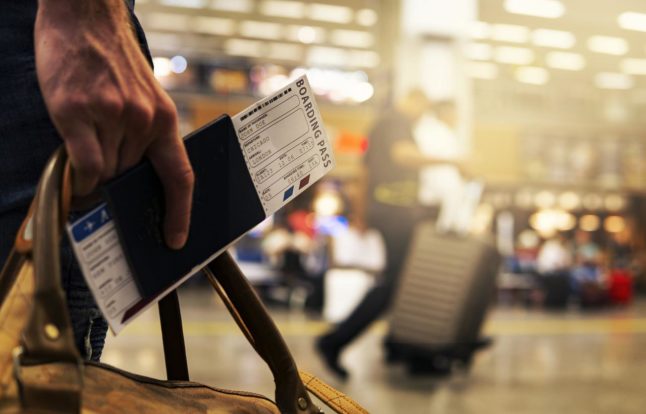Unlike the obligatory car insurance, which you can suspend temporarily by depositing your registration plates at the local motor vehicles office, rules pertaining to health insurance are much stricter.
As the Federal Office of Public Health explains it, “If you leave the country for a certain period to travel or study but do not take up residence abroad, you are still required to have [health] insurance in Switzerland”.
In other words, as long as you are a registered resident of Switzerland, regardless of your nationality or passport, you must keep your compulsory Swiss health insurance and pay your premiums. While you do this, you also remain covered against most medical emergencies while you travel.
However, rules are less stringent for supplemental health plans which can, in some cases, be put on hold, depending on the insurance provider, according to Switzerland’s Moneyland consumer website.
The only exception allowed for suspending the health insurance coverage is during a military or civil protection service which lasts more than 60 consecutive days.
“During these periods, the risks of illness and accident are covered by military insurance. Your health insurance provider will refund your premiums”, according to FOPH.
Under what circumstances can you cancel your Swiss health insurance?
Swiss law says you can cancel your insurance if you are moving abroad, either permanently for for a period exceeding three months.
If you do so, only claims for treatments given while you still lived in Switzerland will be paid by your insurance; any medical bills for treatment incurred after you officially leave will be denied.
These are the procedures for cancelling your compulsory health insurance if you leave the country under conditions mentioned above
To announce your departure abroad, you must send your insurance carrier a letter including your name, customer number or AVS/AHV number.
You must also include a certificate from your place of residence in Switzerland confirming that you have de-registered from your current address, as well as the date of your departure.
Note, however, that if your new destination is another Swiss community / canton, rather than a foreign country, your insurance can only be cancelled from the following calendar year and only if you present proof of having taken up a new policy with another company.
READ MORE: EXPLAINED: How to register your address in Switzerland
You can find out more information about this process here.
If you suspend your health insurance for less than six years, you can reactivate it at a later date with the same company when you return to Switzerland.
READ MORE : What you should know about your Swiss health insurance before you go abroad



 Please whitelist us to continue reading.
Please whitelist us to continue reading.
Member comments